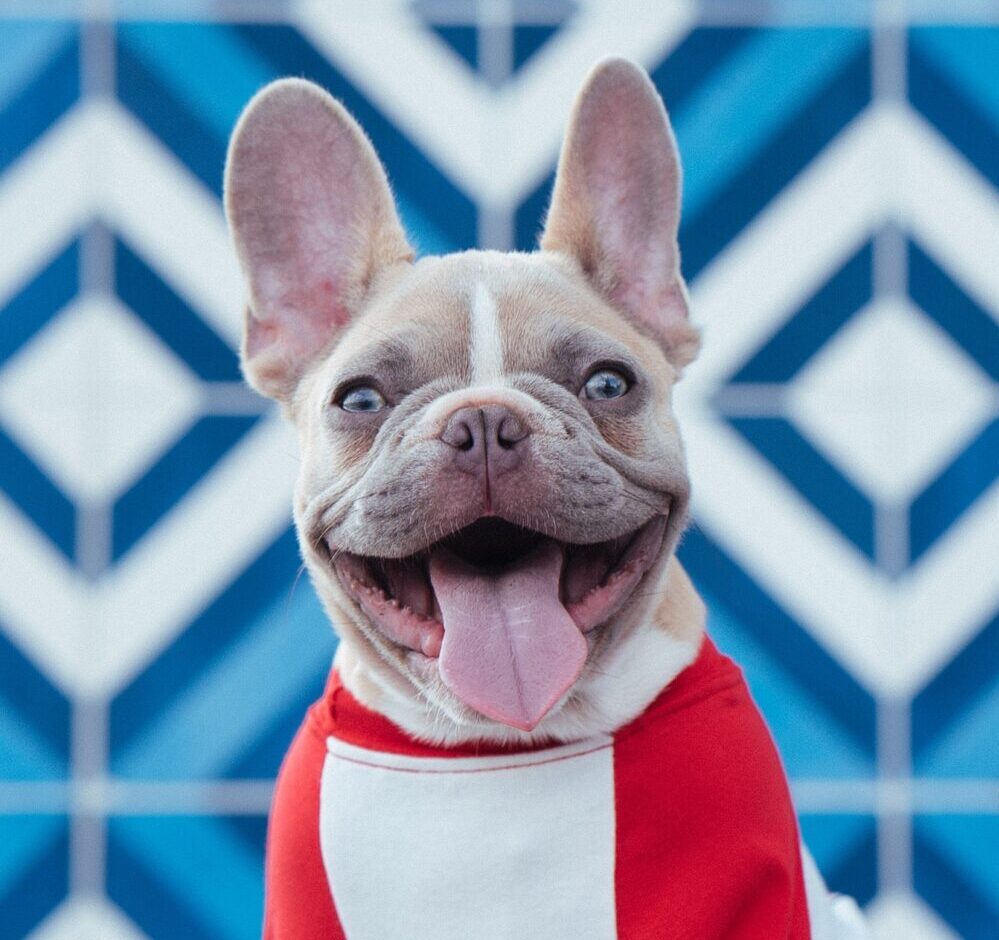Support our educational content for free when you purchase through links on our site. Learn more
What Dog Has the Shortest Nose? [2023]
Have you ever wondered which dog breeds have the shortest noses? If you're a lover of snub-nosed dogs, you've come to the right place! At Snubby Puppy™, we are experts in all things snub nose dogs, and we're here to provide you with extensive information on the topic. So, let's dive right in and discover the dog breeds with the shortest noses and why they have this unique feature.
Table of Contents
- Introduction
- The Snub-Nosed Breeds
- The Advantages of Short Noses
- The Disadvantages of Short Noses
- FAQ
- Quick Tips and Facts
- Conclusion
- Useful Links
- References
Introduction
Short-nosed dogs, also known as snub-nosed or brachycephalic dogs, possess an adorable trait that distinguishes them from other breeds: their short noses! This unique feature has captured the hearts of many dog enthusiasts, sparking curiosity about which dog breeds have the shortest noses. In this article, we'll explore the breeds with the shortest noses, discuss the advantages and disadvantages of this characteristic, and answer some frequently asked questions about short snouts. Let's embark on this snubbily delightful journey!
The Snub-Nosed Breeds
Snub-nosed breeds are characterized by their shorter-than-average noses, which give them their distinct appearance. These breeds are loved for their charming and sometimes comical facial expressions. While there are various breeds with short noses, here are some of the most notable ones:
-
English Bulldog: The English Bulldog is renowned for its compact body, muscular build, and unmistakably short nose. Its adorable, wrinkled face combined with its gentle nature make it a popular choice for families.
-
Pug: Pugs are one of the most recognizable snub-nosed breeds. With their large, expressive eyes and wrinkled foreheads, pugs are both endearing and lovable. They are known for their sociable nature and make great companions for individuals and families alike.
-
French Bulldog: The French Bulldog, often referred to as a "Frenchie," is adored for its playful and affectionate nature. This breed is known for its bat-like ears, muscular build, and, of course, its short nose.
-
Boston Terrier: The Boston Terrier is a compact, friendly, and intelligent breed with distinct markings and a short muzzle. Their distinctive tuxedo-like coat, combined with their friendly and outgoing personality, has made them a popular choice for pet lovers.
-
Boxer: While the Boxer may have a more elongated face compared to other snub-nosed breeds, it still falls under the brachycephalic category. With their muscular physique and expressive eyes, Boxers are known for their playful and energetic nature.
-
Shih Tzu: The Shih Tzu, with its luxurious coat and sweet expression, is a breed that has been cherished for centuries. While their noses may be longer compared to other snub-nosed breeds, they still possess unique snub-nosed features that make them irresistible.
-
Bullmastiff: The Bullmastiff is a large and powerful breed known for its imposing appearance and protective nature. While their noses may not be as short as other snub-nosed breeds, they still possess characteristics that qualify them as having a shorter nose.
-
Pekingese: The Pekingese is an ancient breed known for its lion-like appearance and luxurious mane. While their long, flowing coats may draw attention, their snub-noses complete the fascinating picture.
These are just a few examples of the many dog breeds with shorter noses. Each breed possesses its own unique set of characteristics and attributes that make them a favorite among dog lovers worldwide.
The Advantages of Short Noses
While short noses are an adorable characteristic, they can also bring several advantages to the breeds that possess them. Let's take a look at some of the benefits that come with shorter noses in dogs:
-
Improved Heat Tolerance: Short-nosed dogs, with their shorter airways, have an easier time dissipating heat. This makes them better equipped to handle warmer climates and reduces the risk of heat stroke.
-
Reduced Risk of Snacking Mishaps: The shorter noses of these breeds can make it more challenging for them to reach food or objects that they aren't supposed to consume. This can help prevent accidental ingestion of harmful items and reduce the likelihood of gastric blockages.
-
Unique Facial Expressions: Short-nosed dogs often have unique facial expressions that endear them to their owners. From the comical snorting sounds they make to their expressive and squishy faces, these breeds are unparalleled in their ability to make us smile.
-
Great Companions: Breeds with shorter noses are often known for their friendly and affectionate nature. Their endearing appearance and gentle demeanor make them exceptional companions for individuals and families alike.
The Disadvantages of Short Noses
While short noses have many advantages, it's essential to be aware of the potential challenges that come along with this characteristic. Here are a few drawbacks to consider:
-
Breathing Difficulties: Due to their shorter airways, snub-nosed breeds can experience breathing difficulties, especially during hot weather or periods of physical exertion. This can lead to snoring, wheezing, and a heightened risk of respiratory issues.
-
Risk of Overheating: While short noses provide some heat tolerance advantages, the compromised airways of snub-nosed breeds can still make them more susceptible to overheating. It's crucial to provide these dogs with proper care and avoid exposing them to excessive heat.
-
Potential for Dental Problems: The unique facial structure of short-nosed breeds can result in dental overcrowding and misalignment. It's important to take extra care of their oral health to prevent dental issues like tooth decay and gum disease.
-
Increased Vulnerability to Certain Medical Conditions: Snub-nosed breeds may be more prone to certain health conditions, such as brachycephalic obstructive airway syndrome (BOAS) and eye issues. Regular veterinary check-ups and proper care are crucial to ensure their well-being.
It's important to note that not all short-nosed dogs will experience these challenges to the same extent. Each breed and individual may have different degrees of respiratory issues or other health concerns. Responsible breeding practices and proper care can help mitigate these potential disadvantages.
FAQ
What is a Short Snout?
A short snout refers to a dog's nose that is shorter or flatter in comparison to other breeds. It gives these dogs their unique facial appearance and often comes with its own set of characteristics and health considerations.
What is a Small Snub-Nosed Dog?
A small snub-nosed dog refers to a dog breed that both has a short nose and a compact body. These breeds are known for their distinctive facial features and charming personalities.
Why Do Some Dogs Have Short Noses?
The short noses of these breeds are a result of intentional breeding for certain physical traits. The desirable facial features of snub-nosed breeds have been selectively bred over time, resulting in their unique appearance. However, it's crucial to prioritize the health and well-being of these breeds to ensure they lead happy and comfortable lives.
Quick Tips and Facts
- Short-nosed dogs often require special care, including monitoring their breathing, avoiding strenuous activities during hot weather, and providing them with proper dental care.
- Regular veterinary check-ups are essential for snub-nosed breeds to ensure their overall health and well-being.
- Snub-nosed breeds may have a limited ability to regulate body temperature, and it's crucial to provide them with a comfortable environment.
- Training and socialization are important for any dog breed, including snub-nosed breeds, to help them develop good behavior and interact with others effectively.
- Many snub-nosed breeds tend to shed, so regular grooming and brushing can help keep their coats healthy and manageable.
Conclusion
Short-nosed dogs possess a unique and endearing trait that sets them apart from other breeds. Whether it's the comical expressions they make or the affectionate nature they exhibit, these breeds have captured the hearts of many dog lovers. While there are advantages and disadvantages to having shorter noses, responsible breeding practices and proper care can help ensure that these breeds lead happy and healthy lives. If you're considering bringing a snub-nosed dog into your life, make sure to do thorough research and consult with reputable breeders or adoption centers. With love and care, you'll have a loyal and delightful companion by your side.
Useful Links
- Snubby Puppy™ – Visit our website for more information on snub-nosed dog breeds and tips for their care.
- English Bulldog Breed Information
- Pug Breed Information
- French Bulldog Breed Information
- Boston Terrier Breed Information
- Boxer Breed Information
- Shih Tzu Breed Information
- Bullmastiff Breed Information
- Pekingese Breed Information
References
- AKC. (n.d.). [English Bulldog Breed Information]. Retrieved from https://www.akc.org/dog-breeds/english-bulldog/
- AKC. (n.d.). [Pug Breed Information]. Retrieved from https://www.akc.org/dog-breeds/pug/
- AKC. (n.d.). [French Bulldog Breed Information]. Retrieved from https://www.akc.org/dog-breeds/french-bulldog/
- AKC. (n.d.). [Boston Terrier Breed Information]. Retrieved from https://www.akc.org/dog-breeds/boston-terrier/
- AKC. (n.d.). [Boxer Breed Information]. Retrieved from https://www.akc.org/dog-breeds/boxer/
- AKC. (n.d.). [Shih Tzu Breed Information]. Retrieved from https://www.akc.org/dog-breeds/shih-tzu/
- AKC. (n.d.). [Bullmastiff Breed Information]. Retrieved from https://www.akc.org/dog-breeds/bullmastiff/
- AKC. (n.d.). [Pekingese Breed Information]. Retrieved from https://www.akc.org/dog-breeds/pekingese/





